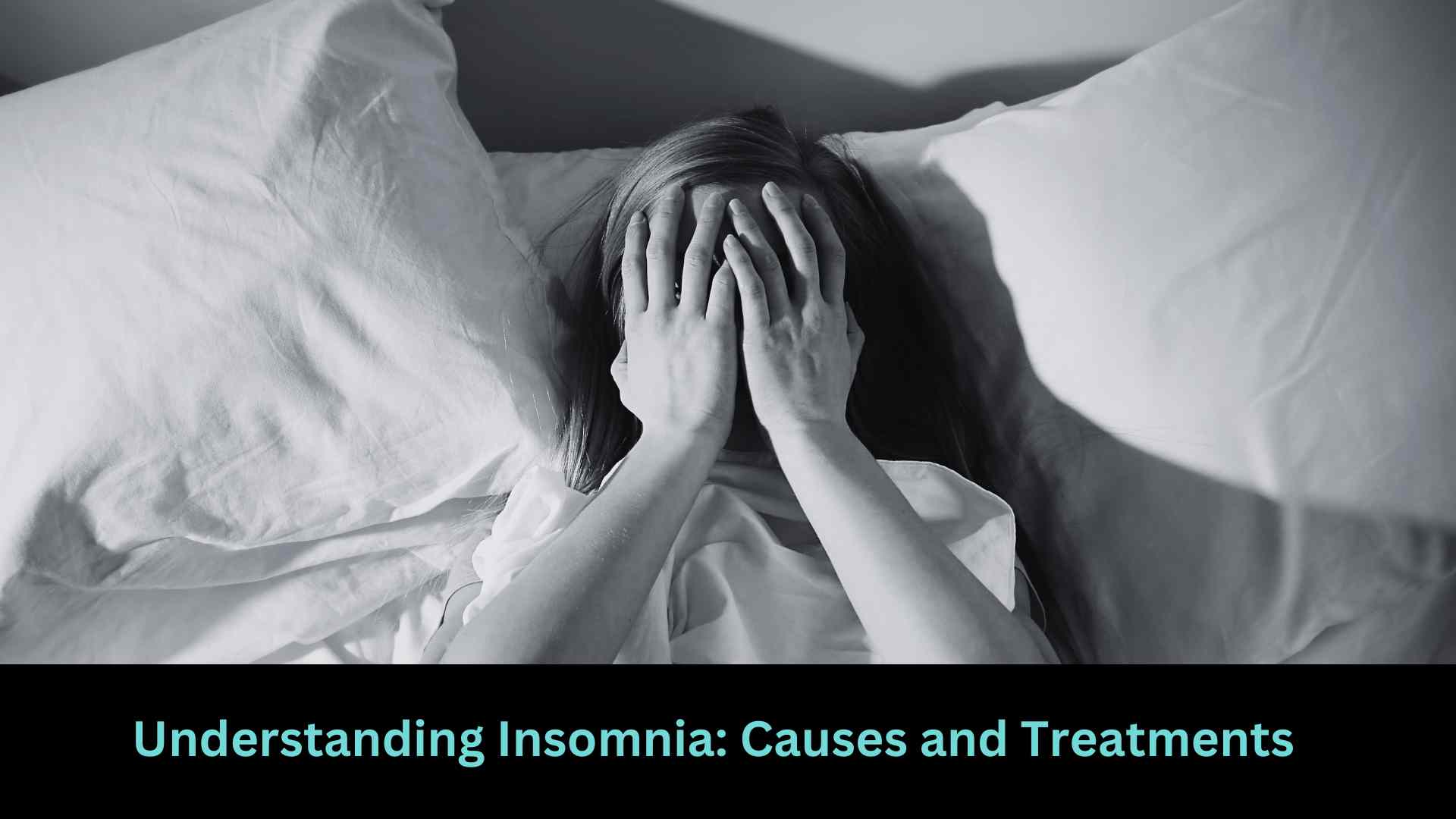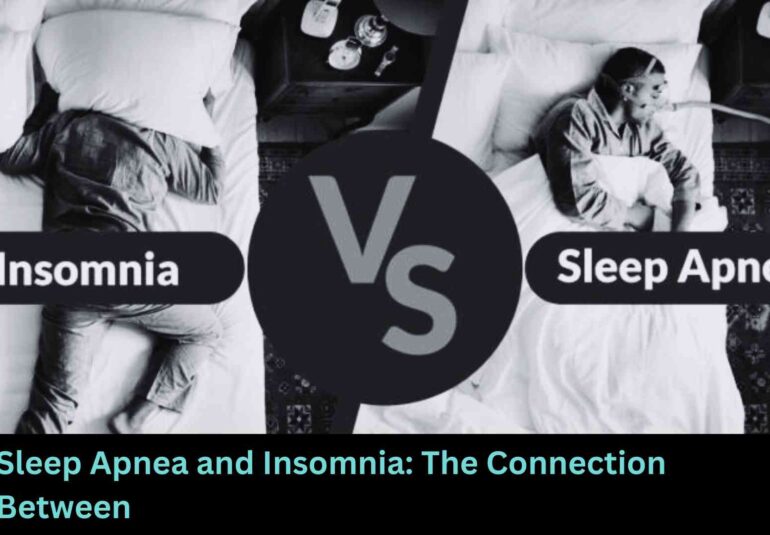
- Insomnia
-
by rohit1
Introduction to Insomnia
Insomnia is a widespread issue that affects millions of people around the globe. Characterized by difficulty falling asleep, staying asleep, or waking up too early, insomnia can significantly impact daily life and overall health. This article aims to explore the causes of insomnia and the various treatments available to help manage this common sleep disorder.
What is Insomnia?
Insomnia is a sleep disorder where individuals have trouble sleeping despite having the opportunity to do so. It can be classified into two types:
- Acute Insomnia: Short-term insomnia often caused by life circumstances such as stress or trauma. It usually lasts for a few days or weeks.
- Chronic Insomnia: Long-term insomnia occurring at least three nights a week for three months or longer. It can be due to underlying health issues or long-term stress.

Causes of Insomnia
Insomnia can be caused by a variety of factors. Understanding these causes is crucial in finding the most effective treatment.
Stress and Anxiety
Stress and anxiety are among the most common causes of insomnia. Worries about work, health, finances, or relationships can keep your mind active at night, making it difficult to sleep. Chronic anxiety disorders can also lead to persistent insomnia.
Lifestyle Factors
Certain lifestyle choices can contribute to insomnia, including:
- Irregular sleep schedules: Going to bed and waking up at different times each day can disrupt your circadian rhythm.
- Poor sleep habits: Activities such as using electronic devices before bed, consuming caffeine or alcohol, and engaging in stimulating activities close to bedtime can interfere with sleep.
- Lack of physical activity: Sedentary lifestyles can affect your ability to fall asleep.
Medical Conditions
Various medical conditions can cause or exacerbate insomnia, including:
- Chronic pain: Conditions like arthritis or fibromyalgia can make it difficult to get comfortable and sleep well.
- Respiratory issues: Asthma or sleep apnea can disrupt breathing during sleep.
- Gastrointestinal problems: Acid reflux or irritable bowel syndrome can cause discomfort that affects sleep.
- Neurological disorders: Diseases like Parkinson’s or Alzheimer’s can impact sleep patterns.
Medications
Certain medications can interfere with sleep, including:
- Antidepressants
- Medications for asthma
- Blood pressure medications
- Over-the-counter medications containing caffeine or other stimulants
Environmental Factors
Your sleep environment plays a significant role in your ability to sleep well. Factors such as noise, light, and an uncomfortable mattress or pillow can contribute to insomnia.
Symptoms of Insomnia
Common symptoms of insomnia include:
- Difficulty falling asleep at night
- Waking up during the night
- Waking up too early
- Daytime tiredness or sleepiness
- Irritability, depression, or anxiety
- Difficulty paying attention or focusing on tasks
- Increased errors or accidents
- Ongoing worries about sleep
Diagnosing Insomnia
Diagnosing insomnia typically involves a medical evaluation. Your doctor may ask about your sleep patterns, stress levels, and overall health. Keeping a sleep diary for a couple of weeks can also provide valuable information. In some cases, a sleep study may be recommended to monitor your sleep patterns and identify any underlying sleep disorders.
Treatments for Insomnia
Treating insomnia often involves a combination of lifestyle changes, therapy, and sometimes medications. Here are some of the most effective treatments:
Cognitive Behavioral Therapy for Insomnia (CBT-I)
Cognitive Behavioral Therapy for Insomnia (CBT-I) is considered the first-line treatment for chronic insomnia. CBT-I addresses the thoughts and behaviors that prevent you from sleeping well. It includes techniques such as:
- Sleep education: Learning about healthy sleep habits and the sleep-wake cycle.
- Stimulus control therapy: Associating the bed with sleep and setting a consistent sleep schedule.
- Sleep restriction: Limiting the amount of time spent in bed to encourage a more consolidated sleep.
- Relaxation techniques: Using methods like deep breathing, meditation, and progressive muscle relaxation to reduce stress and promote sleep.
- Cognitive restructuring: Identifying and challenging negative thoughts about sleep.
Medications
Medications can be used to manage insomnia, especially in the short term. However, they should be used under the guidance of a healthcare provider due to potential side effects and the risk of dependency.
Over-the-Counter Sleep Aids
These include antihistamines such as diphenhydramine (Benadryl) or doxylamine (Unisom). They can help you fall asleep but may cause drowsiness the next day.
Prescription Medications
Prescription sleep medications include:
- Benzodiazepines: Medications like XANAX and Ativan can help with sleep but carry the risk of dependence and should be used cautiously.
- Non-benzodiazepine hypnotics: Drugs like Ambien and Belbien are commonly prescribed for sleep issues and have fewer side effects than benzodiazepines.
- Antidepressants: Certain antidepressants, like trazodone, can help with sleep.
Learn more about these medications and their effects on insomnia at Rx Online Guide.
Lifestyle Changes
Making changes to your lifestyle can greatly improve your sleep. Here are some tips:
- Establish a regular sleep schedule: Go to bed and wake up at the same time every day, even on weekends.
- Create a relaxing bedtime routine: Engage in calming activities such as reading or taking a warm bath.
- Limit exposure to screens before bed: The blue light from phones, tablets, and computers can interfere with your sleep.
- Be mindful of your diet: Avoid large meals, caffeine, and alcohol close to bedtime.
- Get regular exercise: Physical activity can help you fall asleep faster and enjoy deeper sleep. However, try not to exercise too close to bedtime.
Natural Remedies
Natural remedies can be effective for some people with insomnia. These include:
- Herbal supplements: Valerian root, chamomile, and lavender are known for their calming effects.
- Melatonin: This natural hormone can help regulate your sleep-wake cycle.
- Essential oils: Aromatherapy with oils like lavender or cedarwood can promote relaxation and sleep.
Internal Links
For more tips on managing sleep disorders, check out our Sleep Health section.
External Links
Read more about insomnia treatments on the National Sleep Foundation.
Preventing Insomnia
Prevention is always better than cure. Here are some strategies to prevent insomnia:
- Maintain a healthy lifestyle: Eat a balanced diet, exercise regularly, and manage stress.
- Create a sleep-friendly environment: Keep your bedroom dark, quiet, and cool. Invest in a comfortable mattress and pillows.
- Stick to a sleep schedule: Consistency is key in regulating your body’s internal clock.
- Avoid naps: While short naps can be refreshing, long or irregular napping during the day can negatively affect nighttime sleep.
Living with Insomnia: Tips and Strategies
Living with insomnia can be challenging, but with the right strategies, you can manage its impact on your life. Here are some additional tips:
- Practice good sleep hygiene: Follow the tips mentioned above consistently.
- Manage stress effectively: Techniques like mindfulness, meditation, and yoga can help reduce stress and anxiety.
- Stay active during the day: Regular physical activity can help you sleep better at night.
- Seek support: Talking to friends, family, or a support group can provide comfort and practical advice.
Internal Links
For more information on managing anxiety and its impact on sleep, visit our Anxiety Management page.
External Links
For professional help, find resources on the American Academy of Sleep Medicine.

Conclusion
Insomnia is a complex and multifaceted sleep disorder that requires a comprehensive approach to treatment. By understanding the causes of insomnia and exploring various treatment options, you can find the most effective way to improve your sleep and overall quality of life. Remember, it’s important to consult with healthcare professionals to determine the best course of action for your specific situation.
For more detailed guides on sleep disorders and treatments, visit our homepage.



